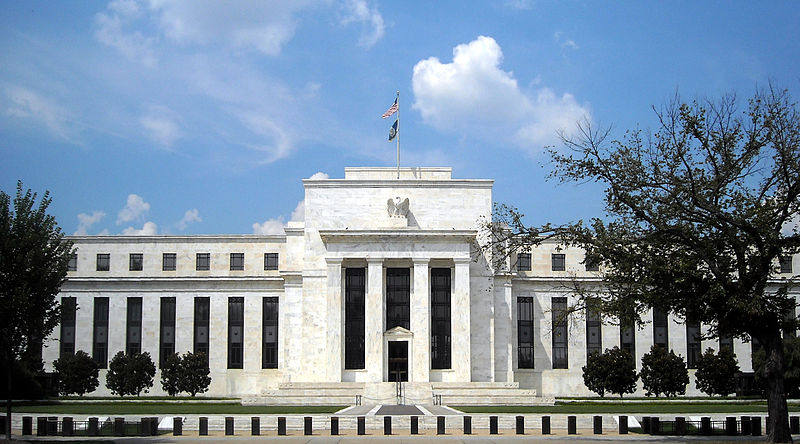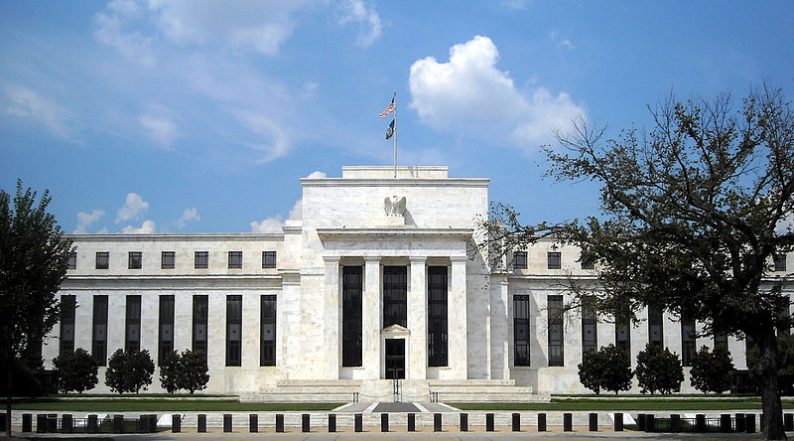The stock market’s initial reaction to the FOMC announcement was interesting, to say the least. After receiving the umpteenth excuse as to why rates can still not be raised, coupled with a promise that they eventually will be, the market initially rallied on Thursday. And why wouldn’t it? More free money is good for stocks, right?

The Eccles Building, home of the FOMC – Meetings
Photo credit: AgnosticPreachersKid
The rally only lasted for one hour though. In the final hour of trading, the market sold off and closed in negative territory. On Friday, the selloff intensified somewhat. By Friday’s close, the SPX had lost more than 60 points from its Thursday intra-day high, a sizable chunk over such a brief time period. Below is a chart showing the triangle from which it initially broke out to the upside (ahead of the announcement) and a Fibonacci grid – resistance was encountered right between the traditional 50% and 61.8% retracement levels.

S&P 500 Index, daily: the breakout from the triangle seems to have failed – click to enlarge.
As we are writing these words on Monday, the index is rallying again from the apex of the triangle to which it had returned as of Friday. So one cannot be certain yet that the breakout attempt will really turn out to be a failure – a clear break below the apex would however strongly indicate that a retest of the August lows was likely in the cards (at a minimum).
A Case of Cognitive Dissonance
Anyway, we have tried to come up with an explanation to the market’s sudden reassessment of the FOMC announcement. What is driving market psychology at the moment? One obvious point is technical: When major indexes return to the vicinity of a previously broken support level, some selling pressure will tend to emerge from traders/investors who were caught by surprise when the break below support originally occurred.
In terms of the content of the FOMC announcement, we may have evidence of a sort of communication breakdown (i.e., the official propaganda line is no longer accepted without question). On the one hand, the excuse given for delaying the rate hike was utterly laughable. Something happened in China? The Fed isn’t the PBoC. There was “market volatility”? Are the Fed’s rate decisions now influenced by every 10% correction in the stock market that happens to come along? If that is the case, there will never need to be a rate hike again.











Leave A Comment